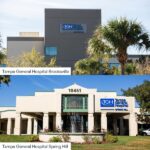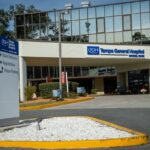 Opening a new medical marijuana treatment center (MMTC) in Florida can be challenging. Yet the biggest obstacle that INSA faces, according to CEO and cofounder Peter Gallagher, is the amount of time it takes to get everything operational in order to provide patients with its high-quality product.
Opening a new medical marijuana treatment center (MMTC) in Florida can be challenging. Yet the biggest obstacle that INSA faces, according to CEO and cofounder Peter Gallagher, is the amount of time it takes to get everything operational in order to provide patients with its high-quality product.
“We’re very excited to serve patients in the Florida market; in every market we’ve come into, we’ve quickly won the loyalty and patronage of customers,” he said of the company that already operates in Massachusetts and Pennsylvania. “We’re very grateful for the opportunity to build our business out here and get it operational—the hardest part of getting the license is waiting the year it will take to do that.”
As part of the state’s vertically integrated industry, INSA, named for two dominant strains (Indica and Sativa) of the plant, will soon be growing, manufacturing and selling medical cannabis to patients. The company acquired its license in December of 2020, and is operating out of a temporary facility in southern Florida. Construction was recently started on its permanent facility, which will include an indoor cultivation facility, processing lab, edible production area and affiliated support areas.
“We’re hoping to start growing later this year, and then start commercial sales early next year,” said Gallagher, adding that the company is currently scouting dispensary locations.
The company is very familiar with the vertical model, as Massachusetts’ original medical cannabis program was designed the same way. “Everything we grew, we had to sell out of our own dispensaries,” said Gallagher. “Over time, the state broke up the license types to allow for wholesaling in the medical and adult-use markets.”
Before being allowed to purchase its Florida license, the company had to go through all of the required background checks and share its policies and procedures. A variance had to be approved, noting the difference between what the original owner of the license and INSA planned to do, and everything had to be submitted to the state before the license could be transferred.
“The state and the Department of Health did their homework on us to make sure that we were capable of operating in Florida,” said Gallagher. “We’re now in the process of developing plans to operationalize production facilities in order to scale our business.”
INSA plans to manufacture all of its own products from flowers to edibles and will launch retail locations once the inventory is ready. “We haven’t finalized things from a retail perspective, as we’re still dependent on how construction rolls out,” said Gallagher. “We want to open up with a full selection of products, and we don’t want to open more stores than we can successfully supply.”
Known for its high-quality products developed from cultivars with unique cannabinoid and terpene profiles, Gallagher says that the company is excited to introduce Floridians to something new.
“We have one of the best chocolatiers in the country making our confections, which include a number of unique flavors that we’re starting to roll out now,” he said. “We differentiate ourselves by the quality of our products and services, which includes allowing patients to spend as much time as they need to learn about our products and how different strains will affect them.
“For some, the store experience can be intimidating and purchasing products is high-pressure when it shouldn’t be,” he added, noting that customers don’t feel comfortable asking questions when there are lines of people behind them. “We strive to create a place where there is a lot less pressure on patients, and where they can find an ample variety of the highest quality products on the menu.”


























